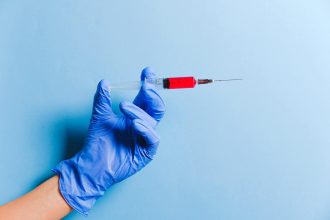The phenomenon of individuals seeking to sell their bodies for monetary compensation has been an intriguing aspect of human behavior, transcending the borders of ethics and morality. One extreme manifestation of such behavior, often seen among extreme cheapskates, is the selling of a testicle. Contrary to popular thought, the option to “put a ‘for sale' sign” on one's testicle is not as simple as it seems. While a testicle can indeed be given up for replacement therapy in scenarios such as testicular torsion, a meticulous set of prerequisites and medical conditions must be met for someone to, in essence, “get paid for donating a testicle.” Furthermore, This transaction becomes dicey if one seeks to sell a testicle on the black market for reasons of legality and health hazards. Having a testicle removed and living with a single normal testicle are decisions one makes under medical guidance, and it's imperative to assess the associated risks before partaking in such irreversible procedures.
Key Takeaways
- Selling testicles for cash is illegal under the 1984 National Organ Transplant Act.
- Instead of just doing it for the money, testicular donations should advance human research or aid others.
- Testicular transplantation is not a standard procedure due to ethical considerations.
- There are alternative ways to make money without selling body parts, such as by donating eggs, participating in sleep studies, or donating sperm.
Can You Legally Sell Your Testicle(s)?
Despite the desperate financial situations some may find themselves in, it’s important to note that selling your testicles is illegal under the National Organ Transplant Act and can lead to severe consequences, including a hefty fine and prison time.
The underground market for body part trafficking might seem tempting when you’re strapped for cash, but remember, your body parts are priceless. So while donating a testicle could appear lucrative, it’s morally questionable and illegal in the United States.
Instead of looking into testicle donation, why not consider other options? Pursue that side gig you’ve always dreamed of. And remember, if you lose a testicle due to an accident, you can always opt for a prosthetic testicle. Your manhood, your choice.

How Much Do You Get Paid To Donate A Testicle?
Curious about how much cash you could rake in for a donation like that? Well, let’s get real. Donating a testicle for money isn’t a surefire way to make extra money. It’s not even legal in many places.
When you donate your testicles, you are not selling them but rather participating in the testicle transplant process as a testicle donor.
Removing a testicle is a serious surgical procedure that requires careful consideration, not just a quick scheme to get paid to donate.
If one testicle is removed, it doesn’t significantly impact your fertility or daily life, but the ethical and psychological implications are hefty.
Remember, your body isn’t a cash cow. There are safer, legal ways to boost your bank balance.
How Much Is a Testicle Worth?
Daring to ask, how much value does a guy’s ‘family jewel’ hold? If you’re considering selling a testicle, here’s a sobering reality check: it’s illegal and can land you in prison. But let’s indulge your curiosity about how much a testicle is worth. On the black market, it’s hard to pin down, but organ prices can reach thousands. If a testicle is removed due to an accident, compensation varies by state. While not quite the real deal, a prosthetic replacement can maintain appearances post-op. Testicles may also have value in medical research, but organ donation is made for humanitarian reasons, not bank balance boosts.
| Testicle Compensation | High | Low |
|---|---|---|
| Compensation for Accidents | $98,108 | $3,750 |
| Black Market (estimated) | ??? | ??? |
| Medical Research | Priceless | Free |
Understanding Testicle Donation: An Overview of the Practice
Understanding testicle donation: an overview of the practice.
Have you ever wondered about the ins and outs of testicle donation? It’s a topic that often raises eyebrows but has merit. Here’s what you need to know:
- Purpose: Some men donate their testicles to help those unable to start a family or those who need a transplant due to testicular cancer. It’s also a boon for transgender men seeking fertility preservation.
- Procedure: Donating a testicle involves making an incision in the scrotum and extracting one or both testes under local anesthesia. Yes, it’s as intense as it sounds.
- Compensation: You can earn up to $3000. However, remember that losing a testicle on the job isn’t a get-rich-quick scheme.
And, if you’re wondering, cadaveric testicle implants are an option if a man’s testicles are removed.
What is the procedure for testicle donation?
Ready to dive deeper into this unique topic? Let’s walk through the intricate process of testicle donation together. The journey begins with screening potential donors for good health and a high sperm count, akin to a sperm donor procedure. Once approved, the surgical removal of one testicle follows. This isn’t a typical transplant but a medical trial to advance our understanding of male fertility.
Here’s a simplistic view with a handy table:
| Steps in Testicle Donation | Description |
|---|---|
| 1. Initial Screening | Assess health and sperm count |
| 2. Approval | Meet requirements |
| 3. Surgical Removal | Extract one testicle |
| 4. Medical Trial Participation | Contribute to research |
| 5. Recovery | Heal from the procedure |
Remember, testicle donation isn’t about selling testicular tissue; it’s about contributing to science. It’s a journey, not a quick cash scheme.
Donating a Testicle: Pros and Cons
Let’s pull back the curtain and weigh up the good, the bad, and the downright funky about donating a lad’s love spuds, shall we?
On the bright side, donating a testicle can be a swift cash boost. You’re not just selling a testicle; you’re contributing to medical research and potentially helping another guy regain his mojo. Plus, there’s a shiny new implant to replace your donated goods, keeping everything looking shipshape in the trouser department.
But hold your horses, cowboy. There’s a flip side:
- Legal woes: Selling your family jewels is a no-go in most of the United States, even if you’re strapped for cash.
- Health hiccups: Testosterone levels might take a nosedive after parting with a healthy testicle.
- Psychological pitfalls: The road post-donation can be a rocky one, mentally speaking.
Donating is a hefty decision, so weigh your pros and cons carefully.

What are the qualifications for donating a testicle?
The idea of selling a testicle might sound like a quick way to make some cash, but it’s not as simple as it seems. Firstly, it’s illegal to sell your testicles for money. However, donating a testicle for research is justifiable.
The qualifications for donating a testicle are strict: good health, no history of certain diseases, and even specific height requirements. Losing one of his testicles doesn’t significantly impact a man’s reproductive function or sexual life, but replacing a natural one with an artificial one isn’t a decision to make lightly.
So, think twice before going the ‘single testicle’ route!
What is the difference between testicle donations and sperm donations?
Sperm donations and testicle donations are as different as night and day. In sperm donation, you provide a sample of your little swimmers, a relatively risk-free process.
But, when it comes to testicle donations, you’re signing up for a different ballgame. Here, testicles are removed in a surgical procedure. You could sell one or both, although we wouldn’t recommend the latter.
And regarding the left testicle myth, there’s no preference for the left or right.
As for the amount you get, it’s not about selling but about reimbursement for your time and discomfort.
What You’ll Need to Get Paid to Donate Testicles
If you’re bent on pocketing some cash through testicle donation, there are a few hoops you’ll need to jump through first. Just ask Las Vegas resident Mark Parisi, who found himself in the middle of an elaborate study due to low testosterone.
- First, you must be healthy and have no sexually transmitted infections.
- You’ll need high fertility rates, and your swimmers must be in top shape.
- Your natural testicles must be okay for the scrotum incision.
- Finally, you must sincerely desire to donate, not just for the money.
Remember that selling plasma or sperm is a less invasive way to earn the extra change. You may want to donate out of altruism but remember: You won’t get rich quickly by donating a testicle.
Where to Get Paid to Donate Testicles
Here’s where you can donate your testicles and get paid for them.
Remember Mark Parisi from ‘Extreme Cheapskates’? He wanted to sell one ball for a quick buck. However, it’s illegal to sell any body part, including germ cells from a testicle, in the U.S.
But don’t let that twist your plans. You can still donate to medical research and clinical trials. In return, you may receive compensation for your time and inconvenience.
Remember, the payout isn’t for the testicle itself. So, your testicle might not make you rich, but your contribution to science surely will.
Where do people sell testicles?
After exploring where to get paid to donate testicles, you’re likely wondering, “Where do people sell their family jewels?” Well, it’s crucial to understand that when it comes to organ donation, it’s illegal in the United States to sell any human organs or tissues, including your precious gems. While you could sell feet pics or get paid for plasma, no legitimate institution will put a ‘for sale sign on your testicles.
Here are some frequently asked questions:
| FAQ | Answer |
|---|---|
| Can I sell my testicles? | No, it’s illegal. |
| Can I donate my testicles for cash? | No, selling organs/tissues is prohibited. |
| Can I sell my feet pics instead? | Yes, it’s legal and profitable. |
| Do institutions pay you for donating testicles? | No, they don’t. |
| What alternatives are there? | Plasma donation, selling feet pics. |
So, before you consider selling body parts, remember other legal ways to earn money.

Final Thoughts on Making Money by Donating a Testicle
First and foremost, it’s essential to recognize that selling your testicle is not a viable side hustle. While making extra cash may be tempting, the reality is much different. The amount of money you would receive for such a donation is minimal, considering that selling body parts in the U.S. is illegal.
Furthermore, it’s crucial to understand that donating a testicle is not a reliable or sustainable way to make extra cash. Not only is it illegal, but it is also not a legal source of income. It’s essential to explore alternative money-making methods that don’t involve selling body parts.
In conclusion, while making money through testicle donation may seem intriguing, it’s essential to approach the idea with caution and understanding. There are better alternatives available for generating income that are legal, sustainable, and do not involve selling body parts.
Remember, the power to make money is real. Use it wisely and explore legitimate opportunities for financial gain.
FAQ
Is it possible to sell or donate a testicle for transplantation?
It is illegal in many jurisdictions to sell body parts, including testicles. However, donating organs, including testicles, for transplantation is typically encouraged, often through organ donation programs.
How much can I get for donating a testicle?
As the sale of human organs for profit is prohibited in many countries, such as the United States, no financial gain is typically involved in donating a testicle. The primary motivator for organ donation is the desire to help others in medical need.
Can people live without a testicle?
Yes, individuals can live without a testicle. Many men have only one testicle for various reasons, including surgery, injury, or birth defects. The remaining testicle will continue its function of producing sperm and hormones.
If someone donates one testicle, will their sexual drive or reproductive capacity be impacted?
Generally, a man can live an everyday life with just one testicle. Biologically, the remaining testicle usually takes over the functions of the removed one. This may include the production of sperm and testosterone, so most men will still be fertile and maintain their sex drive. However, this can vary case-by-case, and a healthcare professional should be consulted.
How do testicle transplants work?
Testicle transplants are considered complex and rarely done. They are typically considered in cases of organ failure or severe injury. The transplantation process involves surgically removing a healthy testicle from a donor and implanting it into the recipient. The success of this procedure is not guaranteed and is dependent on various factors, including the compatibility between the donor and recipient.
Is selling testicles for money a valid side hustle?
No, selling testicles for money is not a valid side hustle in most jurisdictions. In most nations, including the United States, it is against the law to trade human organs for profit, including testicles. Violations of these laws can result in severe legal penalties.
What are the consequences of trying to put “for sale” on your testicle?
Trying to sell your testicle is illegal in most parts of the world. The laws are put in place to protect people from exploitation and potential health risks that could occur due to organ sales. Anyone trying to sell an organ can face criminal charges.
What does the law say about getting paid for organ donations?
Laws vary significantly by country. However, in many countries, including the United States, it is illegal to be paid for organ donation. This applies to all organs, including the testicles. These laws intend to prevent coercion or exploitation of donors, especially those in vulnerable situations.
Can I donate a testicle to a friend or family member in need?
Potentially, yes. However, the process would involve rigorous medical and psychological evaluation to determine the donor's suitability, the organ's compatibility, and the potential impact on the donor's health. The practice is not commonly carried out, so consultation with healthcare professionals is indispensable.






















